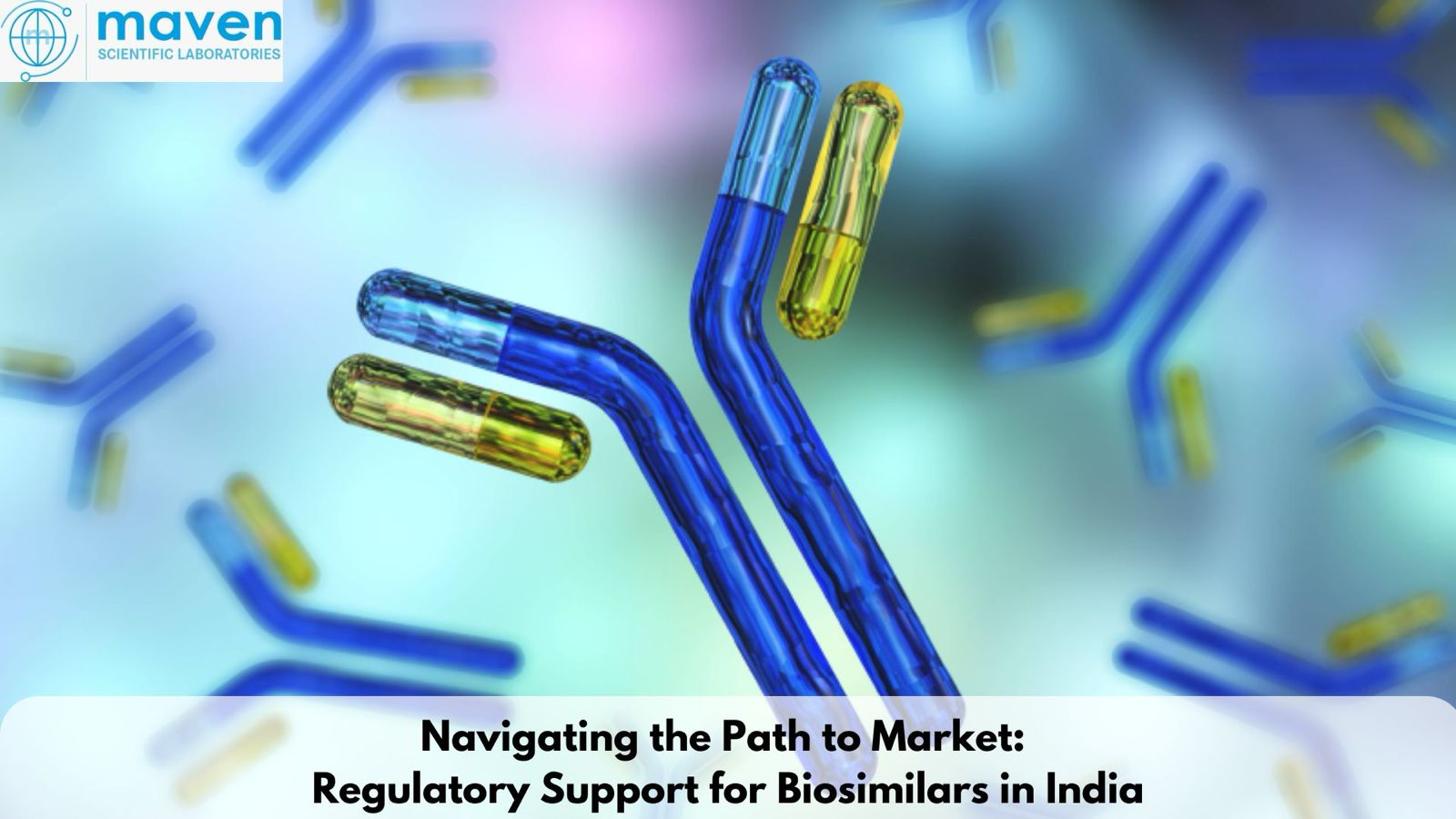
Navigating The Path To Market: Regulatory Support For Biosimilars In India
The global demand for biosimilars has been steadily increasing, driven by the need for cost-effective therapeutic options and the expiration of patents for several blockbuster biologics. As healthcare systems worldwide strive to balance cost efficiency with quality healthcare delivery, biosimilars emerge as a viable solution for reducing treatment costs without compromising therapeutic efficacy. India, as one of the largest pharmaceutical manufacturing hubs in the world, has strategically positioned itself to cater to the global biosimilar market through a robust regulatory framework designed to ensure safety, efficacy, and quality.
Regulatory Framework for Biosimilars in India
India's biosimilar regulations are governed by a collaborative framework involving multiple regulatory authorities, each with a specific role in ensuring the safe development, testing, approval, and commercialization of biosimilars. The key authorities include:
- Central Drugs Standard Control Organization (CDSCO):
- CDSCO is the apex regulatory authority in India responsible for overseeing drug approvals, including biosimilars.
- It regulates clinical trials, ensures adherence to regulatory guidelines, and grants marketing authorizations.
- Review Committee on Genetic Manipulation (RCGM):
- RCGM functions under the Department of Biotechnology (DBT) and oversees pre-clinical and clinical studies involving genetically engineered organisms.
- It ensures that biosimilar development adheres to established genetic engineering guidelines.
- Genetic Engineering Appraisal Committee (GEAC):
- GEAC, operating under the Ministry of Environment, Forest, and Climate Change, provides environmental clearance for biosimilar products.
- Its role is crucial in assessing any potential environmental risks associated with genetically modified organisms.
- Indian Pharmacopoeia Commission (IPC):
- IPC sets and updates quality standards for biosimilars.
- It ensures that all biosimilars comply with the quality specifications outlined in the Indian Pharmacopoeia.
This multi-agency approach ensures a holistic evaluation of biosimilars, spanning scientific, environmental, and quality considerations.
Guidelines for Biosimilar Development in India
The primary guiding document for biosimilar approval in India is the "Guidelines on Similar Biologics," jointly issued by CDSCO and the Department of Biotechnology (DBT). These guidelines outline a step-by-step approach to biosimilar development and approval, with a focus on ensuring similarity to reference biology in terms of quality, safety, and efficacy.
Key Aspects Covered in the Guidelines:
- Pre-Clinical Studies: These include in-vitro and in-vivo studies to evaluate the biosimilar's toxicity, pharmacokinetics, and pharmacodynamics.
- Comparative Clinical Studies: Phase I and Phase III trials are conducted to compare the biosimilar's safety and efficacy with the reference biologic.
- Pharmacokinetics (PK) and Pharmacodynamics (PD) Studies: These studies assess the drug's absorption, distribution, metabolism, and excretion profiles.
- Immunogenicity Assessment: Evaluation of the potential immune responses triggered by the biosimilar.
- Post-Marketing Surveillance: Monitoring the long-term safety and efficacy of the biosimilar after it has been launched in the market.
These guidelines emphasize a stepwise approach where preclinical data must demonstrate similarity before moving on to clinical studies.
Approval Process for Biosimilars in India
The approval process for biosimilars in India involves multiple stages, each designed to ensure a thorough evaluation of the product.
- Development and Characterization:
- Extensive analytical characterization to demonstrate structural and functional similarity to the reference biologic.
- Pre-Clinical Studies:
- In-vitro and in-vivo studies to evaluate the safety and efficacy profiles of the biosimilar.
- Submission of Investigational New Drug (IND) Application:
- Approval from CDSCO is required before initiating clinical trials.
- Clinical Trials:
- Conducting Phase I and Phase III clinical trials under the oversight of CDSCO.
- Data Submission and Review:
- Submission of a comprehensive dossier, including data from pre-clinical and clinical studies, for regulatory review.
- Market Authorization:
- Granting of marketing approval after satisfactory evaluation of submitted data.
- Post-Marketing Surveillance:
- Continuous monitoring of safety and efficacy in real-world scenarios.
This rigorous pathway ensures biosimilars meet global benchmarks for quality and patient safety.
Challenges in Biosimilar Development
Despite a well-defined regulatory pathway, biosimilar development in India faces several challenges:
- Complex Manufacturing Processes: Biosimilars are complex molecules requiring highly controlled manufacturing processes.
- Regulatory Compliance: Dossier preparation and adherence to regulatory guidelines are resource intensive.
- Similarity Demonstration: Ensuring biosimilars match reference products in safety, efficacy, and immunogenicity is scientifically challenging.
- Global Regulatory Variations: Harmonizing Indian requirements with international regulatory bodies adds complexity.
How Maven Can Help
At Maven, we offer end-to-end regulatory support to streamline biosimilar development and approval processes in India. Our expertise spans:
- Regulatory Strategy & Consulting: Tailored strategies for biosimilar registration and market entry.
- Dossier Preparation and Submission: Assistance in preparing CTD and eCTD dossiers for regulatory review.
- Clinical Trial Support: Comprehensive support in clinical trial design, monitoring, and reporting.
- Risk Assessment and Safety Evaluations: Detailed toxicological assessments and immunogenicity evaluations.
- Regulatory Liaison: Seamless coordination with CDSCO, RCGM, GEAC, and other regulatory bodies.
- Post-Marketing Surveillance: Robust monitoring systems to track and report adverse effects.
At Maven, we combine scientific expertise with regulatory intelligence to ensure biosimilars meet both global and local standards, minimizing compliance risks and expediting approvals.
Conclusion
India's biosimilar regulatory pathway offers a structured and transparent framework for manufacturers, ensuring high standards of safety, efficacy, and quality. With Maven's expertise in biosimilar regulatory affairs, companies can confidently navigate India's complex regulatory landscape. By offering tailored solutions and regulatory support, Maven helps clients bring high-quality, affordable biosimilars to market, contributing to improved healthcare access globally.
For more information, connect with Maven and let us help you succeed in the biosimilar market in India and beyond.







